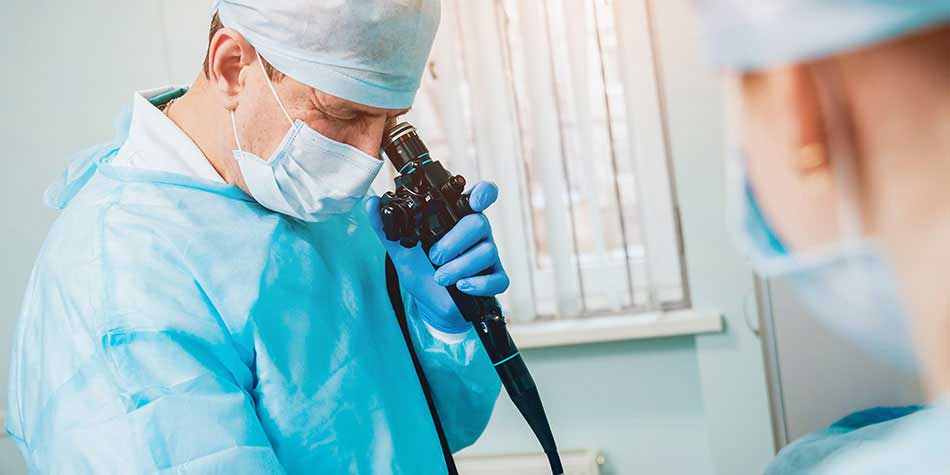
The American Cancer Society updated their guidelines for colorectal cancer screenings, dropping the age for an initial screening from 50 to 45. While that might make many of us groan, there are a number of screening options that are effective—and actually easy—for those with normal risk.
Five Colorectal Cancer Facts
- Colorectal cancer is the second leading cause of death among men and women combined.
- Thanks to increased screening tests, it’s the third most commonly diagnosed cancer
- However, 1 in 3 people are not up-to-date with their screening
- And 23 million adults in the U.S. have not had the recommended screening
- A shocking 60 percent of deaths by colon cancer could be prevented with screening
A study released in 2014 showed that colon cancer incidence rates have dropped 30 percent in the U.S. among adults ages 50 and older due to the widespread use of colonoscopy screenings. The study also showed a large decrease in colon cancer rates among those ages 65 and older. The bottom line, no pun intended, is that screening saves lives.
If your doctor recommends a screening, or you’re looking for easier options, we’ve pulled together a guide to colorectal screening.
Colorectal screenings fall into two categories, stool-based tests and visual exams. Stool-based tests check your feces for signs of cancer. These tests are less invasive and easier to have done, but they need to be done more often. Visual exams look at your colon and rectum, using a scope or with imaging, for any signs of abnormalities.
Note that any abnormal test results are usually followed up with a colonoscopy, and not all tests are recommended for those with digestive issues or colon cancer symptoms.
Stool-Based Tests
Fecal immunochemical test (FIT):
Small amounts of stool are collected on cards at home and then sent or taken to a lab. The test looks for trace amounts of blood resulting from cancerous spots.
Pros:
- No bowel prep
- Sampling can be done at home
Cons:
- Needs to be done each year
- Can miss some cancers
- Sometimes gives false-positives
Guaiac-based fecal occult blood test (gFOBT):
This fecal test can also be done from home, but it tests for hidden blood in the stool through a different, chemical way than the FIT test.
Pros:
- No bowel prep, but some patients are advised to cut out non-steroidal anti-inflammatory drugs (NSAIDs), Vitamin C supplements, and red meat in advance of the test.
- Sampling can be done at home or during an exam
Cons:
- Needs to be done each year
- Can miss some cancers
- Sometimes gives false-positives
Stool DNA test:
This at-home collection test looks for abnormal sections of DNA from cancer or polyp cells.
Pros:
- No bowel prep
- Sampling can be done at home
Cons:
- Needs to be repeated every 3 years
- Can miss polyps and some cancers
- Can give false-positives
- Still new, so insurance coverage may be an issue
Visual Exams
Colonoscopy:
A doctor looks at the entire length of your colon and rectum with a colonoscope, a flexible tube with a light and a small video camera on the end. Special instruments can be passed through the colonoscope to biopsy or remove any suspicious-looking polyps.
Pros:
- Can biopsy and remove polyps during the test
- Only needs to done every 10 years
- Can help find other diseases
Cons:
- The colon and rectum must be clean for the doctor to see the inner lining, so test prep – using pills, fluids, and/or enemas – is required
- Light sedation during the test means you’ll need a full day to have the test, a driver to take you home, and rest after the procedure
CT Colonography (also called virtual colonoscopy):
This test uses a CT scan of the colon and rectum to create 2D and 3D pictures for the doctor to examine.
Pros:
- No sedation necessary
- Needs to be done every 5 years
Cons:
- Like a regular colonoscopy, full bowel prep is needed
- Air must be pumped into the colon during the scan, which may cause cramps
Flexible Sigmoidoscopy:
Similar to a colonoscopy, this test only looks at a portion of the colon and rectum but requires little bowel prep and usually no sedation.
Pros:
- Usually doesn’t require full bowel prep or sedation
- Done every 5 years
Cons:
- Only looks at about a third of the colon
There’s no two ways about it… If you’re age 45 or older, talk with your doctor about your options for colon cancer screening, and join countless men and women whose lives have been saved from this devastating disease.
$webqFacilityNumber
Need a Physician?